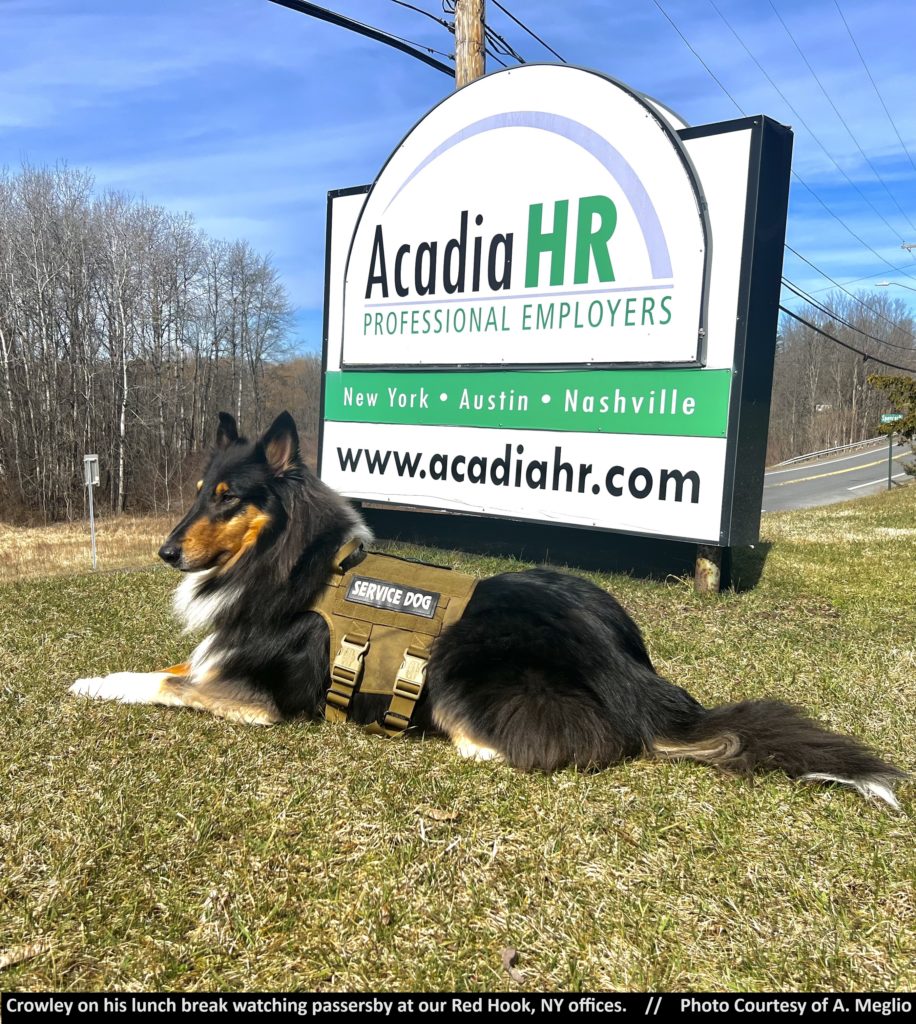Life is hard. So is work. Sometimes things in life go awry and those events deeply impact our ability to work. For some people, that’s called Monday. But for others, it’s a debilitating daily struggle that requires help. And whether the disability is innate or acquired through a life experience or traumatic event, physical and/or mental, many people have found that the presence and assistance of a trained service dog are exactly what they need to lead a more independent life at home and at work.
According to the Americans with Disabilities Act (ADA), a service dog is “a dog that is individually trained to do work or perform tasks for a person with a disability.” They are trained for specific tasks to help their “person” participate fully in daily life. For example, guide dogs help the blind or visually impaired, hearing dogs help the deaf or hearing challenged, mobility dogs assist wheelchair-bound or immobile people, medical alert dogs signal specific urgent medical conditions, and psychiatric dogs provide essential services for those with PTSD, OCD, schizophrenia, or other disabilities.
Because their work is so important, service dogs are not considered pets by the ADA. People encountering working service dogs should respect their space and ask the service dog’s person if the dog may be approached or spoken to.
Employers are encouraged to learn more about the applicability of the ADA to their business and what steps might be required to provide reasonable accommodation for employees with service dogs. Oftentimes, the adjustment for the work environment is simple and the positive organizational impact of supporting a great employee and a new four-legged colleague is priceless!
Acadia HR has been helping businesses locally and nationally since 1989 by delivering tools and resources to build efficiencies in their clients through personal, customized service. For more information on outsourcing options, please call 845.876.1987 or email sa***@******HR.com.

